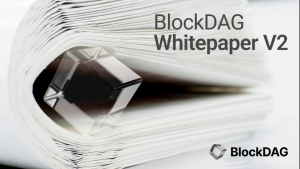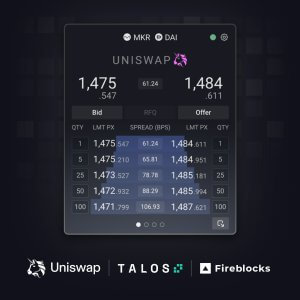Another win for London as EU banks will be dropped as counterparties due to unfavorable EMIR rulings
Tier 1 FX counterparties based in London will once again have the upper hand as EMIR rulings are causing major firms to drop EU banks as counterparties. Here is why.

The political diatribe that continues to emanate from the left-leaning European Commission in the advent of Britain’s exit from the European Union often made reference to how large companies would likely up sticks and move from London to the mainland.
To suggest that such a thing would happen is rather akin to suggesting that Australia is in the northern hemisphere.
Under no circumstances will any large institution based in London move its operations to the economically defunct and technologically barren European mainland, including Tier 1 banks which are themselves of European origin yet operate their business from London’s Square Mile.
The European Parliament has for far too long had a golden goose insofar as Britain’s enormous and incomparable monetary contribution to a technologically and industrially defunct European mainland with which it has absolutely no alignment socially or commercially massively outstrips the entire continent.
For this reason, Britain – and for Britain read London – will soon jettison the burden of a giant, archaic, socialist juggernaut which controls its markets and simply takes and does not give.
In the FX industry, London is the absolute powerhouse for the entire region, and indeed one of the world’s focal points for the entire financial services business. It is a gigantic producer of revenues and has a highly dedicated and skilled series of professionals who continue to strive toward moving forward, and do so in a very sophisticated manner.
Underpinning the entire combined cognitive prowess of London’s senior executives is a massive and finely honed technological infrastructure that ranges from hosting (Equinix LD4 being one of the largest electronic trading data center locations in the world) to order routing systems, liquidity management and in-house developed interbank and institutional trading systems that are supported by hundreds of developers and engineers per bank.
Among some of the largest interbank FX dealers are British, American and European Tier 1 banks, however they handle their entire FX business from London, regardless of their original country of origin.
Deutsche Bank and Societe Generale are two cases in point. Alongside some of the British mainstays, RBS being the most recent example, Deutsche Bank and Societe Generale realize that they are unable to scale their core business activities if they continue to curtail counterparty credit to OTC derivatives companies, which is a massive revenue generator with very little overheads.
Quite simply, the Tier 1 banks want your business back, a matter researched extensively in London by FinanceFeeds this summer.
London’s already absolutely disproportionate and enormous might within the FX industry will be strengthened further by January 2018, because once again the European Commission fails to understand that it cannot compete with the highly developed and massively advanced London based institutional and interbank sector when it not only has very little infrastructure or experience in the electronic trading sector, but also implements socialist, anti-business methodology that will render the entire continent an unfavorable place from which to conduct international business.
The new European Market Infrastructure Directive (EMIR) which sets forth the entire method by which electronic trading must be conducted on a pan-European basis across all sectors includes a very unfavorable procedure relating to the rules for margining non-cleared OTC derivatives.
By way of background, EMIR implemented a procedure called variation margin requirements, which as of February this year were applied in two stages: from 4th February 2017 for those counterparties with more than EUR 3 trillion aggregate average notional of non-centrally cleared OTC derivatives and from 1st March 2017 for all other in-scope counterparties.
Initial margin requirements are also being phased-in: applying to the first category of in-scope entities from 4th February 2017 and being fully applied by 1st September 2020.
Product specific phase-in relief from the variation margin requirements is available for physically settled FX forwards, and from variation and initial margin requirements for single stock equity index and index options. Phase-in relief has also been provided for intragroup transactions.
What does this mean?
European banks are being cut from counterparty lists for some foreign clients as a direct result of the EMIR rulings that would force dealers to collect variation margin on currency forwards. Banks in other jurisdictions, including post-Brexit London, will be able to continue trading the products without margin after the rules take effect in the European Union in January 2018.
“What we are doing now is taking EU banks off the bank panel for our non-EU clients unless those clients want to collateralise,” explained James Wood-Collins, CEO of Windsor-based currency management company Record Currency Management which has £46.1 billion in assets under management earlier this week.
The Margin Rules set out the requirement for certain European financial counterparties (including banks, credit institutions, investment firms, insurers and pension providers, authorised collective investment funds / managers or authorised alternative investment funds with regulated managers) and non-financial counterparties whose 30-day rolling average OTC derivative positions entered into for non-hedging purposes are above specified clearing thresholds (so called EU FC and EU NFC+ respectively) to collect variation margin and initial margin from their OTC derivatives counterparties with respect to transactions not subject to the EMIR clearing obligation.
These requirements will also impact certain third country entities that would be subject to the Margin Rules if they were established in the European Union.
Once again, London 1: Europe 0.









